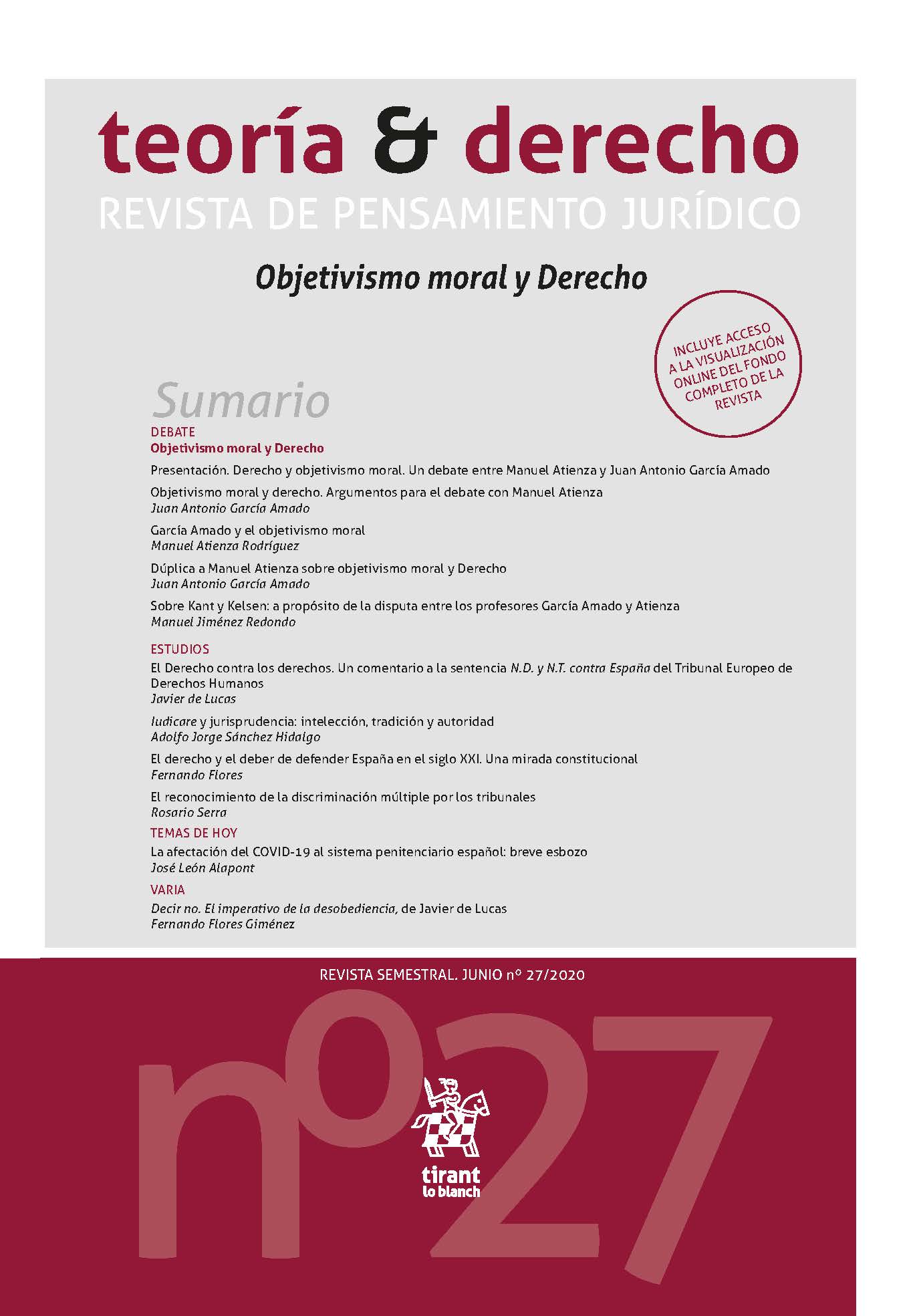García Amado and the Moral Objetivism
DOI:
https://doi.org/10.36151/td.2020.002Keywords:
Moral objectivism, practical reason, judicial decision, discretion, claim to correctnessAbstract
This article is part of a debate about law and moral objectivism. Manuel Atienza’s response focuses on the following thesis: a) there are moral positions, such as the defense of slavery, for which conclusive reasons may be given; b) the identification and interpretation of law cannot be done in many cases without appealing to moral judgments; c) law may be unfair, but there could not be any legal system completely unconnected to any notion of justice; d) moral objectivism is compatible with legal positivism; e) a moral non-objectivist can have as strong moral convictions as an objectivist; f) moral judgments are not as demonstrable as empirical judgments, but they can be based on an analogous manner; g) norms such as those inspired by Islamic law are valid law in many countries, but they would not be valid in constitutional state systems, because they violate its basic principles; h) to justify a court decision implies that the decision is correct , and such presumption is important to understand that when a court decision is evaluated this should be done according to criteria which presuppose their correctness; i) legal reasons are not justifying reasons by themselves, they need to be based on moral premises; j) law incorporates an element of internal ideality or morality, in addition to the authoritative element; k) the presupposition of ideal discursive conditions, characteristic of constructivism, is essential for a theory of the rational discourse; l) it is unavoidable that sometimes judges have to weigh, since they are subject to the Constitution and must ensure the dignity of people; m) moral objectivism does not lead to judicial activism; n) judges cannot decide with discretion in the strong sense and the thesis of the only correct answer is a call to the judge to make an effort to find the correct answer.
Downloads





















